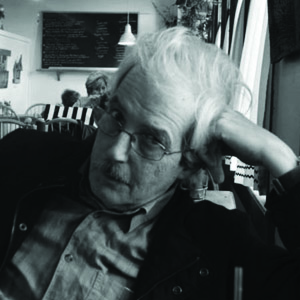

Edison Jennings
Broadstone Press recently published Edison Jennings’s first full-length poetry collection, “Intentional Fallacies.”
An accomplished writer and teacher, Jennings has published poetry and essays in a variety of journals and anthologies, including “Boulevard,” “Kenyon Review,” “Slate,” “Southern Review,” “Poetry Daily” and “The Southern Poetry Anthology: Contemporary Appalachia.” He earned a Bachelor of Arts degree from the University of the State of New York, and a Master of Fine Arts degree from Warren Wilson College.
Jennings expresses himself and searches for meaning through his poetry.
“I’m not sure why I focus so much on poetry,” he says. “I guess I like the density, the wit, and the figuration of poetry. And the way it sounds — primarily the way it sounds. I write poetry in rhymed, blank and free verse. With rhymed verse, I usually fool around with ballads and sonnets, though I have been known to mangle terza rima (an arrangement of triplets that rhyme aba, bcb, cdc, etc.) from time to time. Most of my poems, though, have been free verse.”
He says that poetry delights him and reminds him of who he is and says, “those two answers are not as self-centered as they might seem.”
“The world is both beautiful and cruel; living things suffer and die in the midst of unspeakable magnificence. How to come to terms with that? I don’t know. Maybe poetry might offer a clue?”
Jennings uses his poetry to try to come to terms with the conflict between beauty and suffering and to explore other concepts familiar to everyone: loss, gain, triumph, defeat, joy, suffering, love and loneliness.
“The poems here are finely wrought and rich, utilizing form, meter and rhyme to confer dignified meaning to local, especially rural life, a life that is increasingly dismissed by the broader culture. In his use of traditional poetic treatment, Jennings implies a claim, namely, that aesthetic value is not simply the stuff of high art, but a feature of all human vitality—even the commonest among us has an idea of art, because art in its various forms is always a human expression. The poet’s stance, wisely, is not defensive, but honest. These poems show the work of an exemplary craftsman who brings to his craft delight in discovery and plenty of affection, which are so needed in our present moment. This is an elegant and moving collection, one I will go back to again and again,” says Maurice Manning, author of “Railsplitter.”
“For years Edison Jennings has been quietly and modestly writing some of our finest poetry. Like few others, he recognizes the limits of a poem. He knows what he’s doing, with the music and the meaning. He is both sophisticated and unabashedly direct, a master of the line, of diction, of syntax. His formal poems stand out for their bold rhymes and elegant metrical literacy, but the voice is never cheated, and if he makes every word count, he makes not only a poetry of measure, but a thing bursting with imagination and humor. Finally, the pay-off is that all of his craft embellishes subjects that really matter. Unintentional Fallacies is a terrific book,” says Rodney Jones, author of “Salvation Blues: 100 Poems, 1985-2005.”
Country Song
She styles hair, does manicures too,
at Sassy Girl’s Bonbon Salon
(The Place To Go For A Killer Do),
and he drives a long-haul truck,
popping Addies to stay awake,
selling weed for an extra buck
to pay off their subprime loan
and not have their house repo’d.
“We’re screwed,” he says, “screwed to the bone.”
Then she tells him he’s her hot mess,
brushing back a wisp of his hair.
Their politics? An easy guess.
And though they get high, they somehow survive
and managed to raise three kids
(who say they’ll visit, but never arrive).
Last night she held him while he was asleep,
and heard him mutter, “not nothing will keep.”
Whoever dies first, the other will weep.